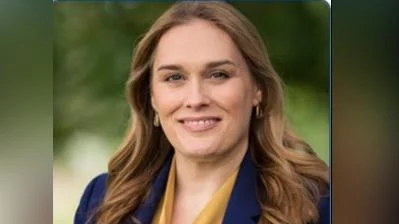State Retirement Systems' of Illinois SERS Executive Committee met January 11.
Here is the minutes provided by the Committee:
A meeting of the Executive Committee of the State Employees’ Retirement System of Illinois was held on Thursday, January 11, 2018 at 8:30 a.m. in the System's Springfield office at 2101 S. Veterans Parkway.
Committee Members:
Loren Iglarsh, Chairman
David Morris, Vice-Chairperson
Timothy Blair, Executive Secretary
Others Present:
Jeff Houch, Assistant Executive Secretary
Steve Bochenek, SERS Attorney
Kathy Yemm, Manager, Claims Division
Alan Fowler, Manager, Accounting Division
Don Williams, Supervisor, Disability Section
Cory Mitchelle, Acting Supervisor, Pension and Death Section
Jessica Blood, Recording Secretary
Patricia Nolin-Winkler, Claimant
V. Carol Robbins, Claimant’s Friend
George Lay, Claimant
Leslie Lay, Claimant’s Spouse
Minutes of the Previous Meeting-
The minutes of the December 14, 2017 meeting of the Executive Committee were presented by Chairman Iglarsh for approval. Copies of the minutes were previously mailed to Committee members for review. There being no additions or corrections, on motion by Executive Secretary Blair, seconded by Vice-Chairperson Morris and by unanimous vote, the minutes were approved as submitted.
Routine Claims Report-
The Routine Claims Report for the month of December, 2017 was presented. Following review and discussion, the Routine Claims Report for the period of December, 2017, as prepared by staff, was received by the Executive Committee.
Old Business:
J. Stephen Frank – Appeal to Use FAC from IMRF-
James Frank retired reciprocally with the Illinois Municipal Retirement Fund (IMRF) effective June 1, 2017.
Mr. Frank’s last employment was with IMRF and the average earnings from IMRF were used to calculate the SERS retirement benefit.
IMRF has been reporting wages incorrectly to SERS. They have been in including wages paid after the member left employment. Some of this money is wages from the last payroll, however it also includes sick and vacation pay that SERS cannot use in the calculation of a Final Average Compensation. IMRF is unable to provide a breakdown of wages to show the amount that is salary, so SERS excludes the last month of earnings and includes one previous month of earnings to compute a FAC.
IMRF reported wages in June, 2017 for Mr. Frank in the amount of $38,791.25. SERS excluded this month and added on the earnings from June, 2013.
IMRF is using a FAC of $8,853.08 due to a 125% cap. SERS is using a FAC of $8,480.88. If SERS used the wages provided by IMRF, the cap would also be applied by our system. This would increase the member’s retirement annuity by $193.79.
Mr. Frank is appealing the calculation of the FAC and requesting SERS use the earnings credited in June, 2017.
Update: Per the City of Springfield Department of Public Utilities, out of the $38,791.25 paid to Mr. Frank in June, 2017, $5,879.68 was for regular wages and comp time. If SERS used these wages for June, 2017 instead of the wages for June, 2013, his pension would decrease by $8.27 per month.
Total compensation from July, 2013 through June, 2017 - $405,736.50/48 = $8,452.84 FAC * 29.4686% = $2,490.93
After reviewing the facts of the case and some discussion, the Executive Committee agreed to refer the case to Attorney Bochenek for recommendation.
Bryan Monk – Appeal of Tier 2 Determination – Recommendation-
Bryan Monk was initially hired by the Department of Transportation (IDOT) in June, 2003. At that time, employees were subject to serve a six (6) month qualifying period prior to being included in SERS membership, “A person entering service on or after January 1, 1984 shall, upon completion of 6 months of continuous service which is not interrupted by a break of more than 2 months, become a member as a condition of employment. Contributions shall begin the first month after the completion of the qualifying period.” [40 ILCS 5/14-103.05] The following table shows Mr. Monk’s initial employment history with IDOT:
From; Through; Service Period:
June
2003; July 2003; 2 months
May; August
2004; 2004; 4 months
May; 2004
2005; 2005; 4 months
May; August
2006; 2006; 4 months
May; August
2007; 2007; 4 months
None of these short periods of employment meet the 6 months of continuous service which is not interrupted by a break of more than 2 months. Therefore, none of this service qualified Mr. Monk for membership within SERS.
When Mr. Monk was hired by IDOT in January, 2012, he became a member of SERS as a condition of employment: “A person entering service on or after December 1, 2010 shall become a member as a condition of employment and shall begin making contributions as of the first day of employment.” [40 ILCS 5/14-130.05 (a-5)]
Additionally, the general provision of the pension code, related to Tier 2 membership would apply to Mr. Monk’s January 2012 employment: “The provisions of this Section apply to a person who on or after January 1, 2011, first becomes a member or participant under any reciprocal retirement system or pension fund established under this Code.” [40 ILCS 5/1-160]
Mr. Monk, like other members of SERS, has the option of purchasing his short periods of employment to enhance his pension. The optional service purchase would not change the fact that Mr. Monk first became a member of SERS or a reciprocal retirement system on or after January 1, 2011, which is the defining factor in tier determination.
Without additional wage data and member contributions to support earlier employment on a state payroll (or documentation of employment within a reciprocal system), the fact remains that Mr. Monk first became a member or participant of SERS in January 2012. This would place him within the Tier 2 membership of SERS.
Following a personal hearing at the December, 2017 meeting, the Executive Committee referred the case to the SERS attorney for review and recommendation.
Attorney Bochenek presented recommendation No. 2018-1 to the Committee to deny Mr. Monk’s request to appeal his Tier 2 Determination. After some discussion, a motion was made by Executive Secretary Blair to accept recommendation No. 2018-1. The motion was seconded by Vice-Chairperson Morris and all were in favor.
Eric Gibson – Appeal of Tier 2 Determination – Recommendation-
Eric Gibson was initially hired by the Department of Transportation (IDOT) in May, 2009. At that time, employees were subject to serve a six (6) month qualifying period prior to being included in SERS membership, “A person entering service on or after January 1, 1984 shall, upon completion of 6 months of continuous service which is not interrupted by a break of more than 2 months, become a member as a condition of employment. Contributions shall begin the first month after the completion of the qualifying period.” [40 ILCS 5/14-103.05] The following table shows Mr. Gibson’s initial employment history with IDOT:
From; Through; Service Period:
May; August
2009; 2009; 4 months
This short period of employment did not meet the 6 months of continuous service which is not interrupted by a break of more than 2 months. Therefore, this service did not qualified Mr. Gibson for membership within SERS.
When Mr. Gibson was hired by IDOT in May, 2011, he became a member of SERS as a condition of employment: “A person entering service on or after December 1, 2010 shall become a member as a condition of employment and shall begin making contributions as of the first day of employment.” [40 ILCS 5/14-130.05 (a-5)]
Additionally, the general provision of the pension code, related to Tier 2 membership would apply to Mr. Gibson’s May 2011 employment: “The provisions of this Section apply to a person who on or after January 1, 2011, first becomes a member or participant under any reciprocal retirement system or pension fund established under this Code.” [40 ILCS 5/1- 160]
Mr. Gibson, like other members of SERS, has the option of purchasing his short periods of employment to enhance his pension. He requested an estimate for this optional service purchase in January 2016, but ultimately did not make the purchase. The optional service purchase would not change the fact that Mr. Gibson first became a member of SERS or a reciprocal retirement system on or after January 1, 2011, which is the defining factor in tier determination.
Without additional wage data and member contributions to support earlier employment on a state payroll (or documentation of employment within a reciprocal system), the fact remains that Mr. Gibson first became a member or participant of SERS in May, 2011. This would place him within the Tier 2 membership of SERS.
Following a personal hearing at the December, 2017 meeting, the Executive Committee referred the case to the SERS attorney for review and recommendation.
Attorney Bochenek presented recommendation No. 2018-2 to the Committee to deny Mr. Gibson’s request to appeal his Tier 2 Determination. After some discussion, a motion was made by Executive Secretary Blair to accept recommendation No. 2018-2. The motion was seconded by Chairman Iglarsh and all were in favor.
Theresa Moore – Request to Waive Survivor Benefit Overpayment – Recommendation-
Louis Moore retired effective December 1, 2002. He received a survivor contribution refund as he did not have any eligible survivors at that time.
Mr. Moore died in May, 2016. His surviving spouse, Theresa Moore, was paid a survivor annuity, although she was ineligible as the survivor refund was taken at retirement. This created an overpayment of $40,340.80 for April 1, 2016 through September 30, 2017. Ms. Moore’s survivor benefit was suspended as of September 30, 2017.
Ms. Moore is requesting that the Executive Committee waive the overpayment of her survivor benefit. Following a personal hearing at the December, 2017 meeting, the Executive Committee decided to refer the case to the SERS attorney for review and recommendation.
Attorney Bochenek presented recommendation No. 2018-3 to the Committee to deny Ms. Moore’s request to waive the overpayment of her survivor benefit. After discussing the facts of the case, a motion was made by Executive Secretary Blair to accept recommendation No. 2018-3. The motion was seconded by Chairman Iglarsh and all were in favor.
New Business:
Patricia Nolin-Winkler – Appeal of SSA Overpayment-
Patricia Nolin-Winkler was approved for a non-occupational benefit from SERS effective August 15, 2014.
Mrs. Nolin-Winkler was approved for a retroactive Social Security disability benefit effective January 1, 2015. The retroactive benefit created an overpayment to SERS totaling $54,176.00 from January 1, 2015 through August 31, 2017.
SERS sent Mrs. Nolin-Winkler a notification letter on September 21, 2017 that explains the calculation of the overpayment and what is due SERS.
Mrs. Nolin-Winkler’s current monthly gross disability payment is $1,989.69. Monthly deductions of $126.87 federal tax, $764.21 for state health, dental and life premiums bring the net payment to $1,098.61. Half the gross of the disability benefit would be $994.85. This amount would reduce the net pay to $103.76 and the overpayment would be paid in full in 55 months. SERS is not currently reducing the disability benefit due to the 30 day process.
Mrs. Nolin-Winkler is appealing the overpayment of $54,176.00. The overpayment due is in accordance with 5/14-125 ILCS of the Pension Code. Mrs. Nolin-Winkler is eligible to receive a pension.
After reviewing the facts of the case and some discussion, the Committee agreed to defer the case pending the calculation of Mrs. Nolin-Winkler’s expenses and a proposed reduced payment plan.
George Lay – Appeal to Reduce SSA Overpayment Repayment Amount-
George Lay works as a Security Therapy Aide II for the Illinois Department of Human Services. He stopped working on January 3, 2016 and began a medical leave of absence on January 17, 2016 due to medical conditions. He has not returned to work.
Mr. Lay has a history of medical issues beginning in 2012, resulting in multiple medical procedures and hospital visits. Mr. Lay’s non-occupational benefit is currently offset by Social Security disability’s benefit plus an additional $600.00 per month that is being deducted to apply toward his SERS overpayment of $11,656.00. Along with the cost of his medications, these deductions have created a financial hardship for Mr. Lay. He is requesting that a lower amount be deducted from his benefit. Mr. Lay is eligible to remain on the SERS benefit until September 30, 2024, which will give him time to repay the overpayment due SERS.
After reviewing the facts of the case, a motion was made by Chairman Iglarsh to reduce Mr. Lay’s overpayment deduction to $300.00 per month. The motion was seconded by Vice-Chairperson Morris and all were in favor.
Patrice Lawrence-Shaw – Dispute Calculation of SSA Overpayment – Personal Hearing-
Patrice Lawrence-Shaw works at the Department of Human Services as a caseworker. Ms. Lawrence-Shaw disagrees with the calculation of her overpayment due to receiving Social Security Disability. Disability staff have reviewed the calculation multiple times with Ms. Lawrence-Shaw.
Due to Ms. Lawrence-Shaw not being present at her scheduled personal hearing, the Executive Committee agreed to defer the case until a future meeting.
Caryn Martin – Non-Occupational Disability 90 Day Waiver-
Caryn Martin works as an Administrative Assistant for the Department of Professional Regulation. She last worked on May 11, 2017. She began a medical leave of absence on May 16, 2017 due to a medical condition.
Ms. Martin is requesting that the 90 day filing limitation be waived for the timeframe of June 15, 2017 through October 10, 2017. Ms. Martin is currently receiving a non-occupational disability benefit as of October 11, 2017. Ms. Martin has indicated that she was hospitalized in May, 2017 for a month. She subsequently began treatment for her condition, which resulted in the late submission of her application.
After discussing the case, a motion was made by Chairman Iglarsh to approve Ms. Martin’s request to waive the 90 day filing limitation. The motion was seconded by Vice- Chairperson Morris and all were in favor.
Rodney Burnett – Appeal Cost of Military Time and Interest / Loss of COLA-
Rodney Burnett has been a correctional officer his entire career. He is 56 years old and needs 20 years (240 months) of service credit to retire with the alternative formula. He has 222 months of service time through the December 2017 payroll posting. He purchased his qualifying period (6 months) in November 2017. He paid for 5 months of military time (of the total 48 which he was eligible) in late 2017 that will be posted to his membership account.
With these service purchases, he has 233 months of the 240 needed, leaving him with 7 months remaining. The necessity of him purchasing all of these 7 months reduces with each month he continues on payroll.
Mr. Burnett provided a DD-214 in 2017 with his latest military purchase, but there is no indication in his file that he submitted the required documentation to SERS in the past.
The interest is charged per the statutes and administrative rules that are in place. The benefit enhancement that Mr. Burnett will receive if he chooses to pay for the optional service purchase will provide payback over time. Alternatively, he can elect not to purchase the additional service and work the remaining 7 months of the needed 240 and retire at the end of July. Mr. Burnett is appealing the cost of his military time plus interest.
After reviewing the facts of the case, a motion was made by Executive Secretary Blair to deny Mr. Burnett’s appeal of the cost of his military time plus interest. The motion was seconded by Chairman Iglarsh and all were in favor.
Kelly Albin – Appeal to Accept QILDRO Member: Ryan Albin-
Ryan and Kelly Albin divorced on January 3, 2017. The divorce decree called for the division of Ryan’s retirement account with SERS.
Ryan Albin died on June 28, 2017. At the time of his death, SERS had not received a QILDRO, nor had one been filed with an Illinois Court.
On December 26, 2017, SERS received a QILDRO and a Consent to Issuance Form, both of which had been filed by the Court on December 21, 2017. Kelly Albin signed the forms as the Independent Administrator of the Estate of Ryan Albin in place of Ryan’s signature.
Kelly Albin, through her Attorney, Curtis S. Lane, is requesting the QILDRO be accepted after Mr. Albin’s death.
Following a review of the case and some discussion, it was agreed by the Executive Committee to refer the matter to the Attorney General to file an interpleader.
There being no further business to be brought before the Committee, the meeting was adjourned at 10:50 a.m.
The next meeting of the Executive Committee is scheduled for February 8th, 2018, in the Springfield office, with video conferencing in Chicago.
https://www.srs.illinois.gov/PDFILES/Minutes/ex_jan18_min.pdf





 Alerts Sign-up
Alerts Sign-up